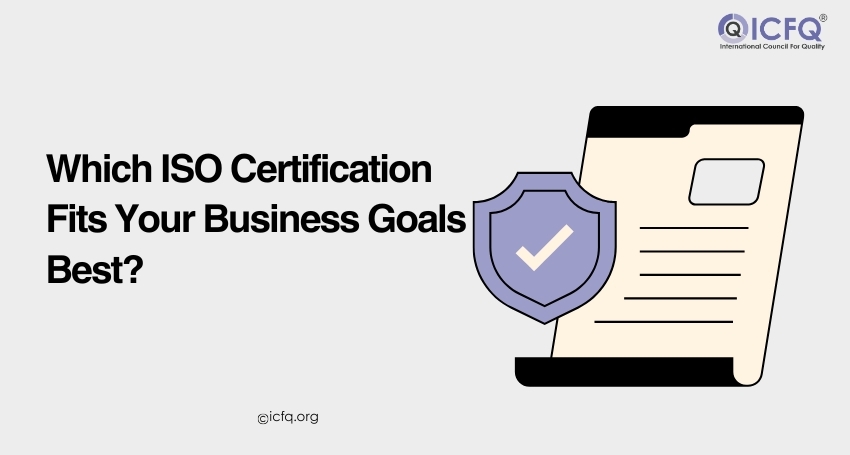
In my experience working with businesses on quality and compliance, one question often comes up: Which ISO Certification can truly transform a business? From what I’ve seen, the right certification does much more than meet compliance, it improves quality, reduces risks, and opens doors to global opportunities.
According to a recent ISO survey, more than 2.3 million organizations worldwide are now ISO-certified. Companies that adopted ISO 9001 have reported up to 20% higher customer satisfaction, while those implementing ISO 27001 experienced nearly a 30% drop in security incidents. These numbers match what I’ve observed in practice, ISO certifications are not just paperwork; they deliver real, measurable impact.
Why ISO Certification Matters for Businesses
ISO Certification is more than a compliance document, it’s a globally recognized standard that signals reliability, efficiency, and commitment to quality. Whether your business is a startup or a multinational, choosing the right ISO standard ensures you stay competitive while meeting customer and regulatory expectations.
Key benefits include:
Enhanced Credibility – Clients see ISO as proof of professionalism.
Operational Efficiency – Process improvements save time and resources.
Risk Reduction – Prevents errors, fraud, and compliance failures.
Market Access – Many global tenders and contracts demand ISO certification.
Popular Types of ISO Certification and Their Purpose
Here are some of the most relevant ISO certifications for businesses:
1. ISO 9001 – Quality Management
This is the most widely adopted certification. It focuses on consistent quality, customer satisfaction, and continuous improvement. Businesses looking to build trust and efficiency benefit most from ISO 9001.
2. ISO 14001 – Environmental Management
For companies committed to sustainability, ISO 14001 helps reduce environmental impact, comply with regulations, and promote eco-friendly practices.
3. ISO 27001 – Information Security Management
In today’s digital age, data security is critical. ISO 27001 ensures sensitive information is protected against breaches, making it vital for IT firms, banks, and e-commerce businesses.
4. ISO 45001 – Occupational Health & Safety
This standard protects employees by reducing workplace risks and promoting a safe working environment. It is especially valuable in construction, manufacturing, and heavy industries.
5. ISO 22000 – Food Safety Management
For food producers, restaurants, and supply chains, ISO 22000 ensures products are safe for consumption, protecting both brand reputation and customer health.
6. ISO 50001 – Energy Management
With rising energy costs, this certification helps companies manage resources efficiently and reduce energy bills while supporting sustainability.
Which ISO Certification Fits Your Business Goals?
Here’s how you can decide:
For improving customer trust → ISO 9001
For eco-conscious branding → ISO 14001
For data security & compliance → ISO 27001
For employee safety → ISO 45001
For food-related businesses → ISO 22000
For energy efficiency goals → ISO 50001
How to Get Started with ISO Certification
Identify Business Needs – Decide which certification aligns with your goals.
Conduct a Gap Analysis – Assess where your current processes fall short.
Develop Documentation – Create policies, manuals, and controls.
Implement Best Practices – Train employees and adopt systems.
Internal Audit – Evaluate readiness before certification.
Choose a Certification Body – Accredited agencies verify compliance.
ISO Certification is not one-size-fits-all, it must align with your business goals. Whether you want to improve quality, protect data, enhance safety, or reduce environmental impact, there is an ISO standard tailored for you.
By investing in the right ISO certification, you not only meet compliance but also strengthen your brand, improve operations, and gain customer trust.
Ready to take your business to the next level with ISO Certification? Contact us at [email protected]
